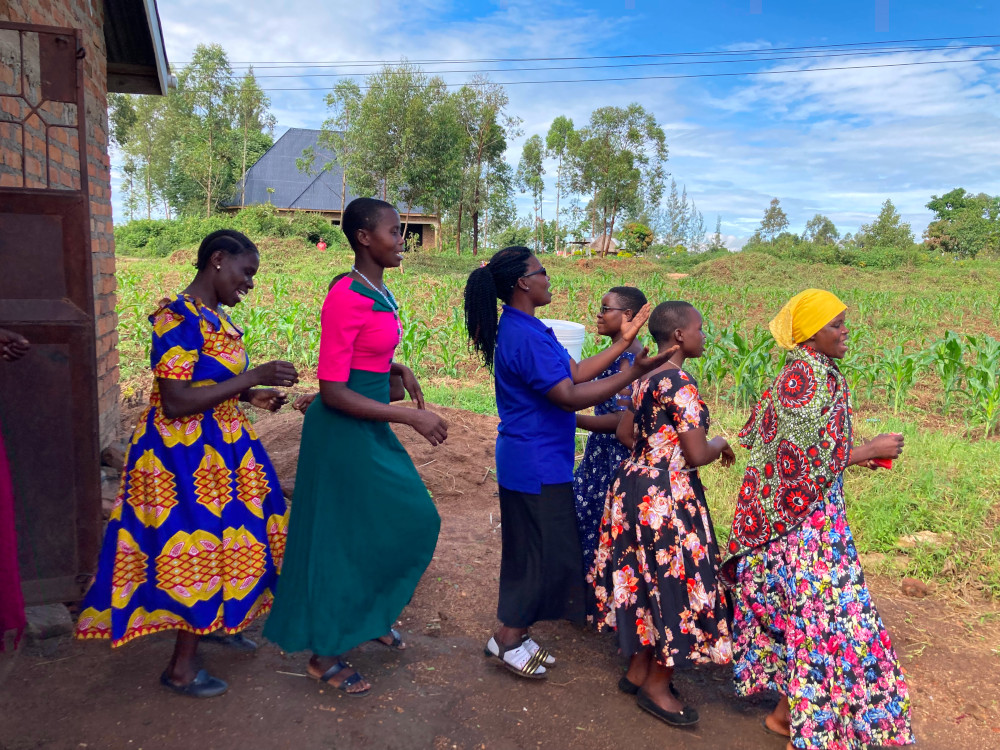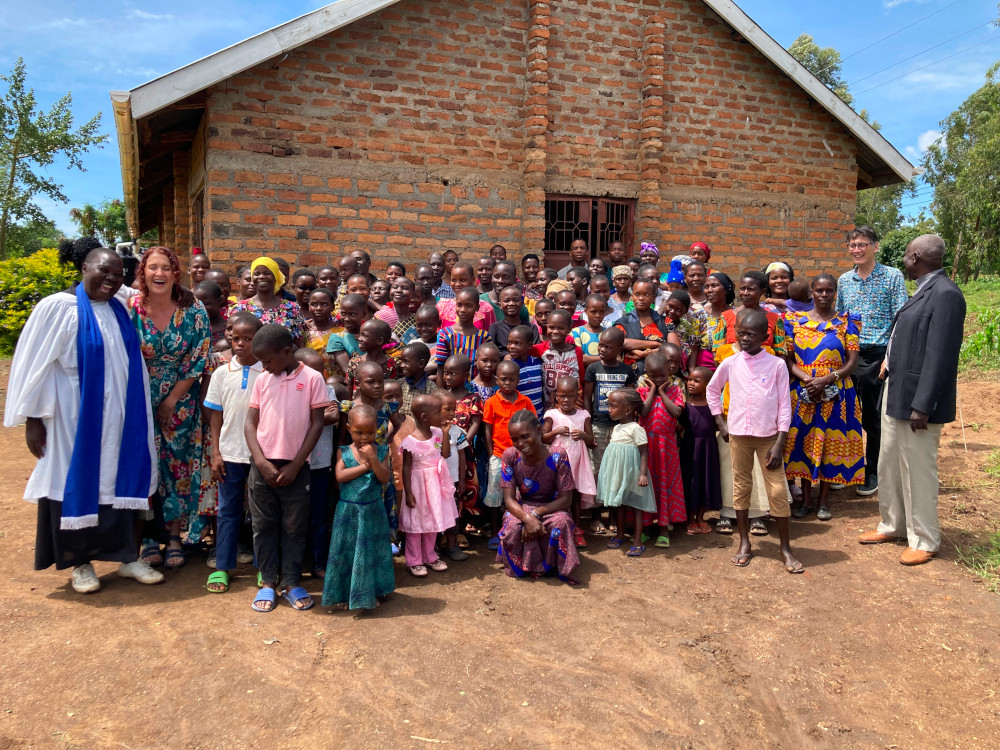On an April Sunday, The Other Cheek was one of two Westerners to visit Gamasara church in a remote part of Tanzania. I went to Africa to report the worldwide gathering of Anglicans known as Gafcon (the Global African Future Conference), but what happened next became the highlight. I spent a week in a group exploring the work of Anglican Aid.
“The Gafcon-tiki tour (my name for my mission trip) split up on Sunday,” I wrote late at night. “Barbara Stephens and I went to Gamasara church. I did not know what to expect, so I was tense, but the welcome was immense. The congregation proceeded out of the church to meet us, ululating (the high-pitched tone of happiness Africans use). I felt instantly welcomed.

“There were about 70 people in Gamasara church that morning. They would all have walked to church, up to 1km, as it is a very local church, many carrying chairs. The building, built after years of meeting under a tarp, is simple. A single-skin brick wall, grills instead of windows, the roof trusses open to the interior under a galv roof, and a dirt floor except for the stage. Barbara and I were the first Westerners ever to visit.
“The choir and congregation sang and danced energetically – sort of Hillsong with dancing. But the music style was dance music – a strong flavour of Britpop or K-Pop.
“Catechist Clemencio Mnyoro, who leads the parish, preached on John 10:1-16. ” in this passage, Christ is talking to us,” she said. ‘We have a Good shepherd. We need to follow the excellent example of Jesus, who gave his life for his sheep.
“‘We have guests from Australia,’ she said. ‘We are all the same, we need to follow Jesus’ good example.'”

That afternoon, the mission trip led by Anglican Aid’s Eddie Ozals, a Sydneysider who volunteers half each year in Tanzania, visited the building site of a Girls’ school – the local Bishop Bishop Mwita Akiri of Tarmime Diocese (region) is working hard to promote female education to combat FGM and the early marriages that often follow it.
So, on one April Sunday, The Other Cheek experienced fervent evangelical worship and female empowerment.
I learned to check my Western Privilege in Africa. Or rather, my privilege was laid bare – which I think was a result of what Eddie Ozals was after. Along the Tanzanian roads around Lake Victoria, villagers were selling their produce, maize and bananas laid on the muddy roadside. If it fails to sell, these subsistence farmers have little, if anything, to fall back on.
On the spot, I wrote, “From manicured, tragic, yet touristy Kigali to Tanzania’s stark poverty subsistence farming villages.
“In Kigali, a U.S. Gafcon delegate was heard saying, “It is just like Florida.” They were right. The Kigali Conference Centre and its top hotels, with familiar brand names like Radisson, would fit the Gold Coast, so probably Florida, too. They did not see the real Africa.
“They did not need to perfect their squat toilet technique.
They did not get to see people selling produce in the village mud in front of shanty dwellings.
“They did not see people labouring in the fields and rice paddies.
They did not get to see a long line of schoolchildren walking home in the driving rain in their school uniforms.
“They were not confronted by the the real Africa.”
Africa was confronting. To see a Bible College, for example, with a Library smaller than the average minister’s in Australia. It was sobering to realise that the computers brought in by the small team I was with would make a big difference.
The Gafcon conference made news because 85% of the world’s Anglicans were represented there, and in protest at moves in England to introduce same-sex blessings, declared that England could no longer lead the Anglican Communion.
Covering the conference was made more difficult by neighbouring Uganda’s parliament passing tougher anti-LGBTQIA laws just before the gathering and the President of Uganda signing them into law just after.
The tumultuous debates over same-sex marriage and whether non-celibate LGBTQIA relationships should be celebrated in the church have been a constant feature of 2023. The NSW Baptists gave notice to several affirming churches that they will have to leave. Progressives have formed a new “Open Baptists” group. A quarter of the US parishes of the United Methodist Church (UMC) left their denomination from 2020 onwards, with conservatives leaving a church moving to a progressive stance. Like the Anglicans, conservative African Methodists form a significant block – and in the case of the UMC, they will be a majority soon, so the progressives are pushing change while they still can.
In Australia, two key Uniting Church Congregations joined Gafcon’s Diocese of the Southern Cross.
It seems the boundaries of evangelicalism are being staked out. How Christians relate to LGBTQIA people is being wrestled with, and just who is the majority and the minority in the wider Church seems unclear to The Other Cheek.
Two attempts at uneasy compromise occurred at the end of the year, with the Catholic document “Fiducia Supplicans,” issued by the Dicastery for the Doctrine of the Faith, asserting same-sex couples can be blessed without changing the doctrine of marriage. This paralleled moves in the Church of England to bless same-sex relationships but without mentioning sex, while maintaining the doctrine of marriage was not changed.
While these attempts at compromise make (western) evangelicals uneasy or dismayed, the hard-line Uganda position is not where they want to be either.
Reporting this story, however carefully, raises the accusation that The Other Cheek is obsessed with sex. 2024, sadly, will see more stories of Christians defining themselves around this topic and the place of the Scriptures in defining where to stand.
